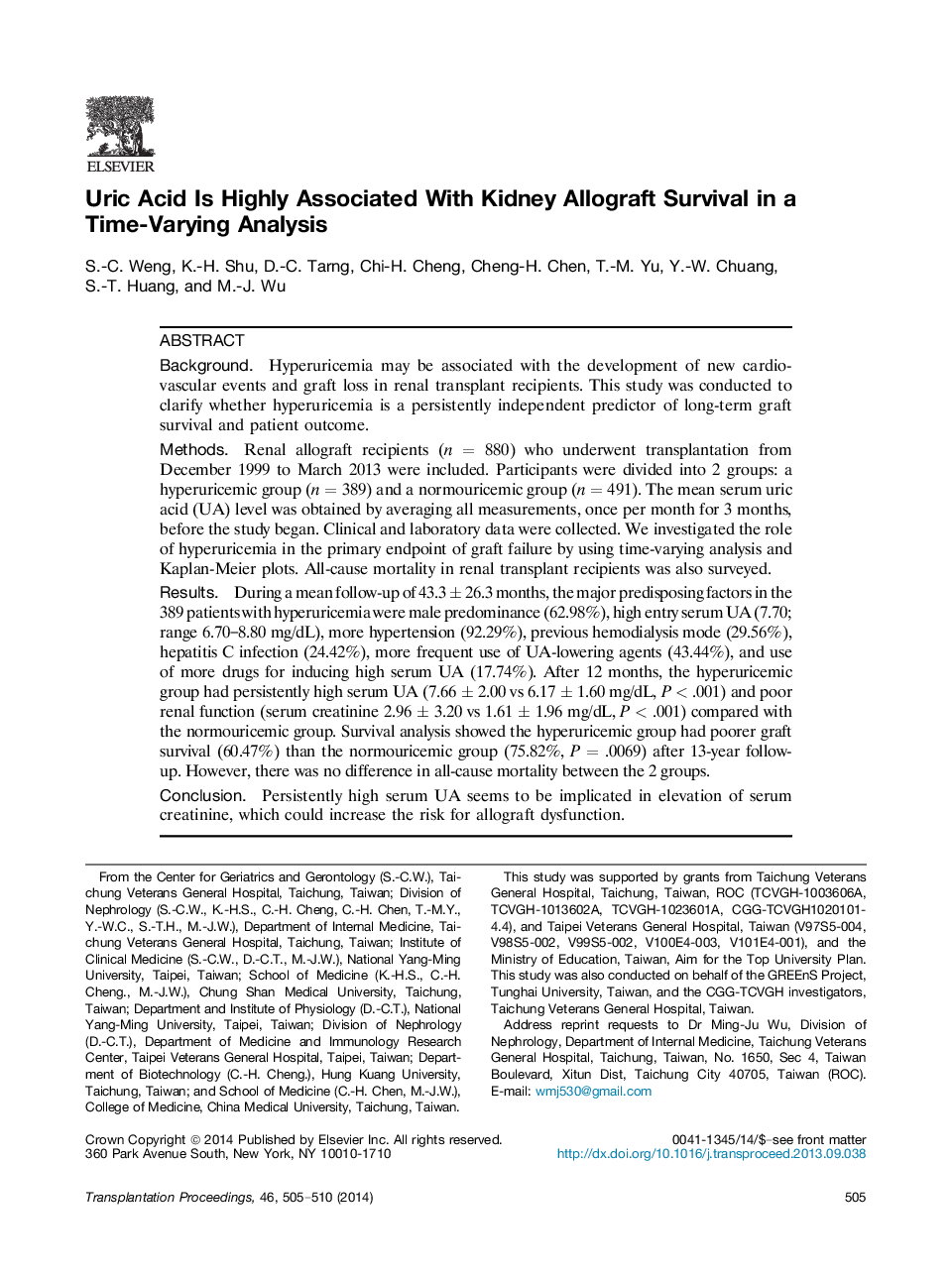| Article ID | Journal | Published Year | Pages | File Type |
|---|---|---|---|---|
| 4258771 | Transplantation Proceedings | 2014 | 6 Pages |
BackgroundHyperuricemia may be associated with the development of new cardiovascular events and graft loss in renal transplant recipients. This study was conducted to clarify whether hyperuricemia is a persistently independent predictor of long-term graft survival and patient outcome.MethodsRenal allograft recipients (n = 880) who underwent transplantation from December 1999 to March 2013 were included. Participants were divided into 2 groups: a hyperuricemic group (n = 389) and a normouricemic group (n = 491). The mean serum uric acid (UA) level was obtained by averaging all measurements, once per month for 3 months, before the study began. Clinical and laboratory data were collected. We investigated the role of hyperuricemia in the primary endpoint of graft failure by using time-varying analysis and Kaplan-Meier plots. All-cause mortality in renal transplant recipients was also surveyed.ResultsDuring a mean follow-up of 43.3 ± 26.3 months, the major predisposing factors in the 389 patients with hyperuricemia were male predominance (62.98%), high entry serum UA (7.70; range 6.70–8.80 mg/dL), more hypertension (92.29%), previous hemodialysis mode (29.56%), hepatitis C infection (24.42%), more frequent use of UA-lowering agents (43.44%), and use of more drugs for inducing high serum UA (17.74%). After 12 months, the hyperuricemic group had persistently high serum UA (7.66 ± 2.00 vs 6.17 ± 1.60 mg/dL, P < .001) and poor renal function (serum creatinine 2.96 ± 3.20 vs 1.61 ± 1.96 mg/dL, P < .001) compared with the normouricemic group. Survival analysis showed the hyperuricemic group had poorer graft survival (60.47%) than the normouricemic group (75.82%, P = .0069) after 13-year follow-up. However, there was no difference in all-cause mortality between the 2 groups.ConclusionPersistently high serum UA seems to be implicated in elevation of serum creatinine, which could increase the risk for allograft dysfunction.
